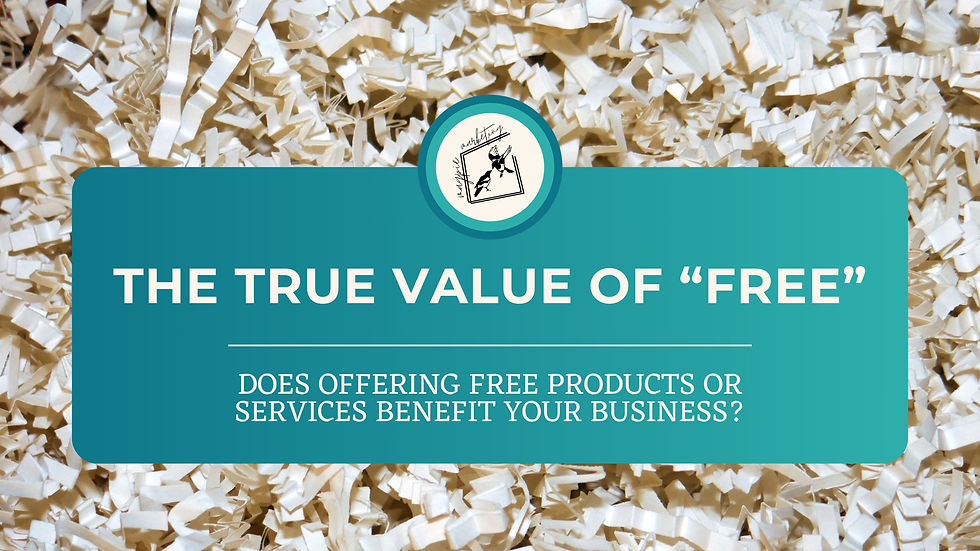- nienhuismadison
- Jun 29, 2025
- 2 min read

Recently I attended a town hall meeting where a representative claimed "when something is free, people don't treat it well.” It's a phrase I've heard before, countless times. But for some reason, this statement rubbed me the wrong way. I’ve learned a lot in my five years helping realtors, lenders, and small businesses market their products and services. And I know that providing gifts has a largely positive impact.
So does offering something for free truly devalue it?
The Zero Price Effect + Cost-Benefit Analysis
This is the studied effect that when the cost of something is zero or free, people value it more. Each time a customer views a product, they are doing a cost-benefit analysis in their heads. They weigh the pros and cons of purchasing the product or service against the price of the product. They compare these items to other similar options, and they intrinsically look for the highest quality item at the lowest price.
When the cost of something is removed and it's offered as free, people will abandon the cost-benefit analysis and careful decision making and "purchase" the product or service at a much higher rate. People will also be cognizant of not taking too much to avoid looking greedy in comparison to other customers.
The word "free" even feels like a reward to most people, which can increase their levels of dopamine when interacting with the product or service. The law of demand states that, all else being equal, as the price of a product decreases, the quantity demanded by consumers will increase, creating an inverse relationship between price and quantity demand. There is also a study showing that when prices decrease people tend to buy more of that product.
Social Pressures & Norms
What if the cost is intended to stop a habit? Gneezy and Rustichini conducted an experiment where fines were imposed on parents who were late to pick up their children from daycare. The intention was to deter the behavior, but they found tardiness increased after the fine was imposed. When there was no longer a cost associated with late pickup, less parents were tardy than previously. The social pressure to not inconvenience the teachers was sufficient enough to deter the negative behavior.
The social norms we experience on a daily basis inform our purchases, decisions, and behaviors. Not only do we do internal analysis to determine if the pros outweigh the cons, but we also take into account our peers and their patterns.
Applying it to Your Business
This is why gifting to your customers or referral partners is so powerful. Whether you're offering free shipping, free samples, or a customized gift, you're building strong, positive associations with your customers. The goal isn't to get a sale or make more money--but to foster the relationship. Relationships are the foundation of any business, and it's vital to sustain them. Try giving free options when and where you can, adding value and expecting nothing in return. You may broaden your reach and provide more potential customers with that warm, fuzzy feeling we are all after.
When you're ready to explore the Zero Price Effect for your business, contact Magpie Marketing today!






Comments